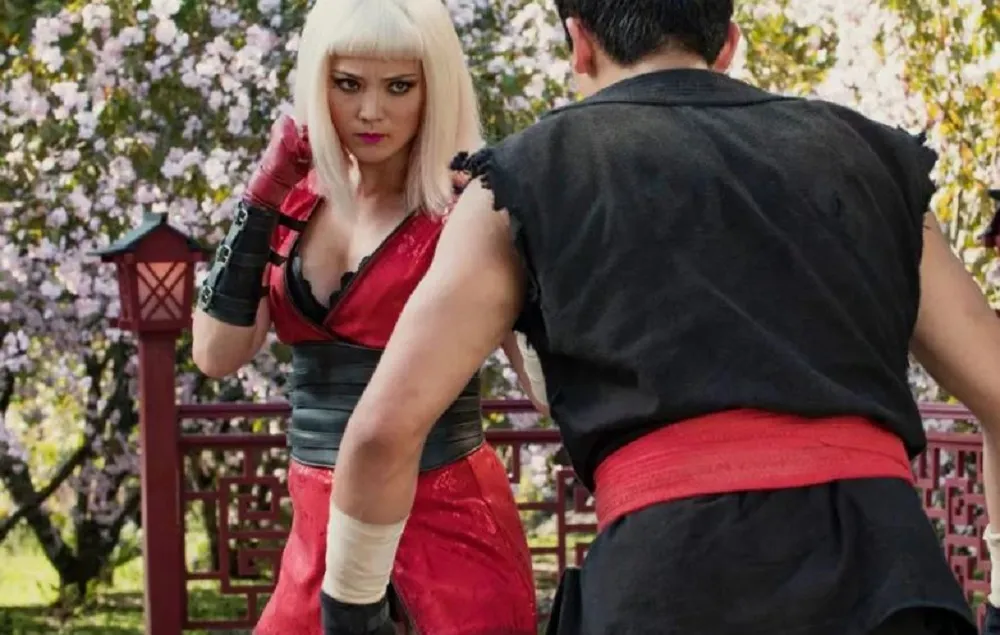The first episode of Black Mirror Season 5, titled Striking Vipers, is a must-watch for fans of the show and anyone interested in virtual reality technology.
Black Mirror is no stranger to virtual reality. As a show that constantly explores how technology impacts, changes, and completely upends our lives there have been multiple episodes specifically focused on VR, AR, and other types of reality-augmenting devices. It’s a bit like Twilight Zone, but all about technology and the future.
There was of course Playtest in Season 3, which is specifically about VR and AR as a device for gaming, as well as Men Against Fire from Season 3, which focuses on AR as a military device. Plenty of other episodes have entire segments that take place entirely within simulations and digital worlds, such as the excellent USS Callister from Season 4.
But Striking Vipers is a more involved look at VR compared to how it has been presented previously on Black Mirror.
Warning: The rest of this article includes heavy spoilers for Black Mirror Season 5 Episode 1, Striking Vipers.

Striking Vipers is about a middle-aged man (Danny) and his relationship with his wife, Theo (Nicole Beharie), and long-time best friend, Karl (Yahya Abdul-Mateen II). Ever since they were roommates in their formative years, Karl and Danny played a fighting video game together called Striking Vipers. Danny always picked Lance, who is a bit like Liu Kang from Mortal Kombat, and Karl always picked Roxette, who reminds me a bit of Chun-Li from Street Fighter. Tonally the game is remniscent of Tekken (there’s a fighting polar bear in it, for example) so it’s a sort of hodge-podge of actual fighting games.
Eventually life happens. They get older, grow apart, and Danny settles down with his family. Several years later Karl and Danny reconnect through Striking Vipers X, a sequel to their favorite game, which requires the use of VR. Instead of wearing a headset, VR in Black Mirror just requires the user to attach a tiny disc to their temple and it puts them “under” immediately, a bit like jacking into The Matrix. For the user, the virtual world all but replaces the real one.
Showing the technology this way is a great method for side-stepping a lot of the technical limitations we have in real life. It would be difficult to tell the story that Striking Vipers tells if things like refresh rate, resolutions, screen door effect, hand controllers, and everything else were in the back of the viewers mind like it is with other pop fiction such as Ready Player One. Naturally, you need to suspend disbelief for a bit and imagine a world where a tiny dot on your head can force your brain to simulate an entire internet-connected alternate universe.
Striking Vipers takes a surprising turn when you realize it’s not just about two old friends reconnecting online by playing a VR fighting game. That’s how it starts out — with Danny trying to learn the controls as Roxette (Karl) pummels Lance. But after grappling onto the ground the two kiss in a heated moment, causing Danny to pull away as they both log off.

What follows is a fascinating exploration of what exactly that means for the two of them. They begin to have a full-on sexual affair in the digital world — meeting up late at night and keeping secrets — but never speak to each other or see one another in real life. The simulation is entirely convincing as it changes their appearance and voice and even simulates physical sensations.
This plot thread introduces a long-standing debate about technology, intimacy, and faithfulness. Is it considered cheating on your significant other if it’s a purely digital relationship? What about if it’s only text in a chat room or over the phone? Or what if it’s an AI like in the film Her? Where do you draw the line?
People have had affairs online in virtual worlds like Second-Life for years and the same thing is probably happening in VRChat every day as well. And since Karl plays the role of a female with Roxette, both he and Danny begin to question their own sexuality as well.
Like most Black Mirror episodes, Striking Vipers spends more time posing questions than answering them which is a real shame. There was potential for Striking Vipers to make a real statement about digital identity or at the very least explore sexuality in a more direct and meaningful way, but it backs down when the material starts to get dicey.
Once it was over I didn’t feel particularly worse or better about my fascination with VR, but I did start to think of its potential differently. I’ve been in those sorts of situations where, unexpectedly, a social VR experience made me feel more acute emotions than I expected. Sometimes its adorable, but not always. As VR continues to progress and evolve, I imagine we’ll see stories like this happening in the real world and not just on Netflix shows.
I won’t spoil how it ends, but it’s a wild ride — albeit one that could have excelled even more. The core cast are all incredible and it’s still an enthralling episode to see play out that ranks up there with San Junipero, White Christmas, and all of the other greats from past seasons of Black Mirror for me.
What did you think of Striking Vipers, if you’ve seen it? Let us know down in the comments below!






























